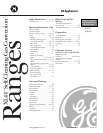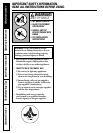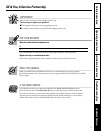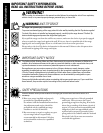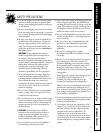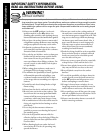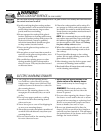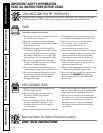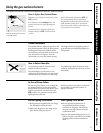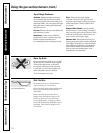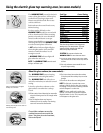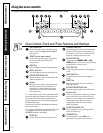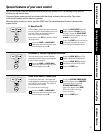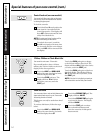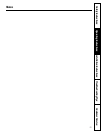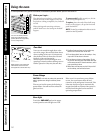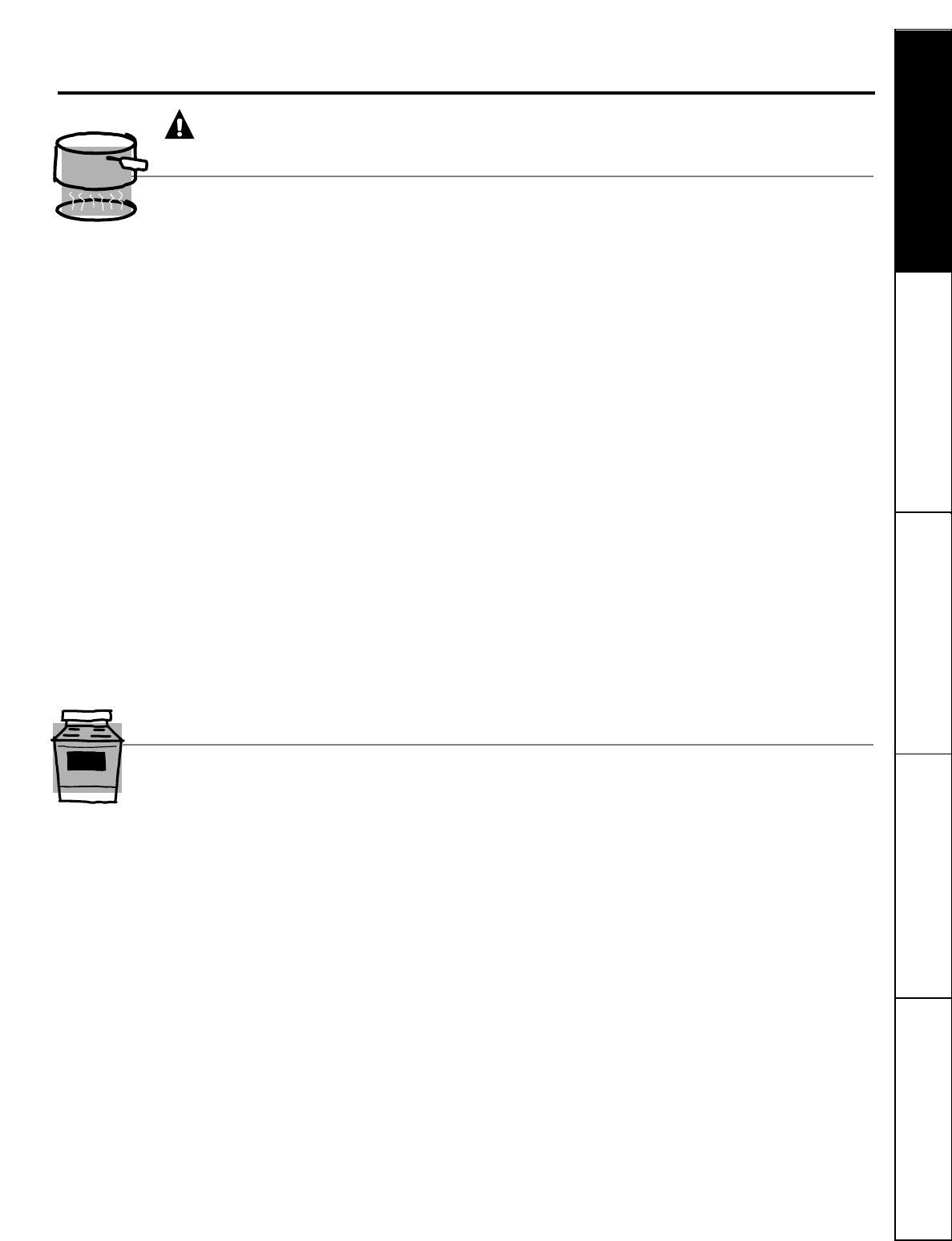
■ The purpose of the warming drawer
is to hold hot cooked foods at serving
temperature. Always start with hot food;
cold food cannot be heated or cooked in
the warming drawer.
■ Do not use the warming drawer to dry
newspapers. If overheated, they can catch
on fire.
■ Do not leave paper products, cooking
utensils or food in the warming drawer
when not in use.
■ Never leave jars or cans of fat drippings in
or near your warming drawer.
■ Always keep wooden and plastic utensils and
canned food a safe distance away from your
warming drawer.
■ Do not warm food in the warming drawer
for more than two hours.
■
Do not touch the heating element or the
interior surface of the warming drawer.
These surfaces may be hot enough to
burn.
REMEMBER:
The inside surface of the
warming drawer may be hot when the
drawer is opened.
■ Use care when opening the drawer. Open
the drawer a crack and let hot air or steam
escape before removing or replacing food.
Hot air or steam which escapes can cause
burns to hands, face and/or eyes.
■ Do not use aluminum foil to line the
drawer. Foil is an excellent heat insulator
and will trap heat beneath it. This will upset
the performance of the drawer and it could
damage the interior finish.
ELECTRIC WARMING DRAWER
Customer Service
Operating Instructions
Safety Instructions Installation Instructions Troubleshooting Tips
7
■ Avoid scratching the glass cooktop surface.
The glass surface can be scratched with items
such as sharp instruments, rings or other
jewelry and rivets on clothing.
■ Do not operate the cooktop if the glass is
broken. Spillovers or cleaning solution may
penetrate a broken cooktop and create a risk
of electrical shock. Contact a qualified
technician immediately should your glass
cooktop surface become broken.
■ Never use the glass cooktop surface as a
cutting board.
■ Do not place or store items that can melt or
catch fire on the glass cooktop surface, even
when it is not being used.
■ Be careful when placing spoons or other
stirring utensils on glass cooktop surface
when it is in use. They may become hot and
could cause burns.
■ Clean the cooktop surface with caution. If a
wet sponge or cloth is used to wipe spills on a
hot surface, be careful to avoid steam burns.
Some cleaners can produce noxious fumes if
applied to a hot surface.
NOTE:
We recommend that you avoid wiping
any surface areas until they have cooled and
the indicator light has gone off. Sugar spills
are the exception to this. Please see
Cleaning
the glass cooktop surface
section.
■ When the cooktop surface is cool, use only
the recommended cleaning cream to clean
the cooktop.
■ To avoid possible damage to the cooking
surface, do not apply cleaning cream to the
glass surface when it is hot.
■ After cleaning, use a dry cloth or paper towel
to remove all cleaning cream residue.
■ Read and follow all instructions and warnings
on the cleaning cream labels.
Use care when touching the glass cooktop surface. The glass surface of the cooktop will retain heat after
the controls have been turned off.
WARNING!
GLASS COOKTOP SURFACE
(on some models)



